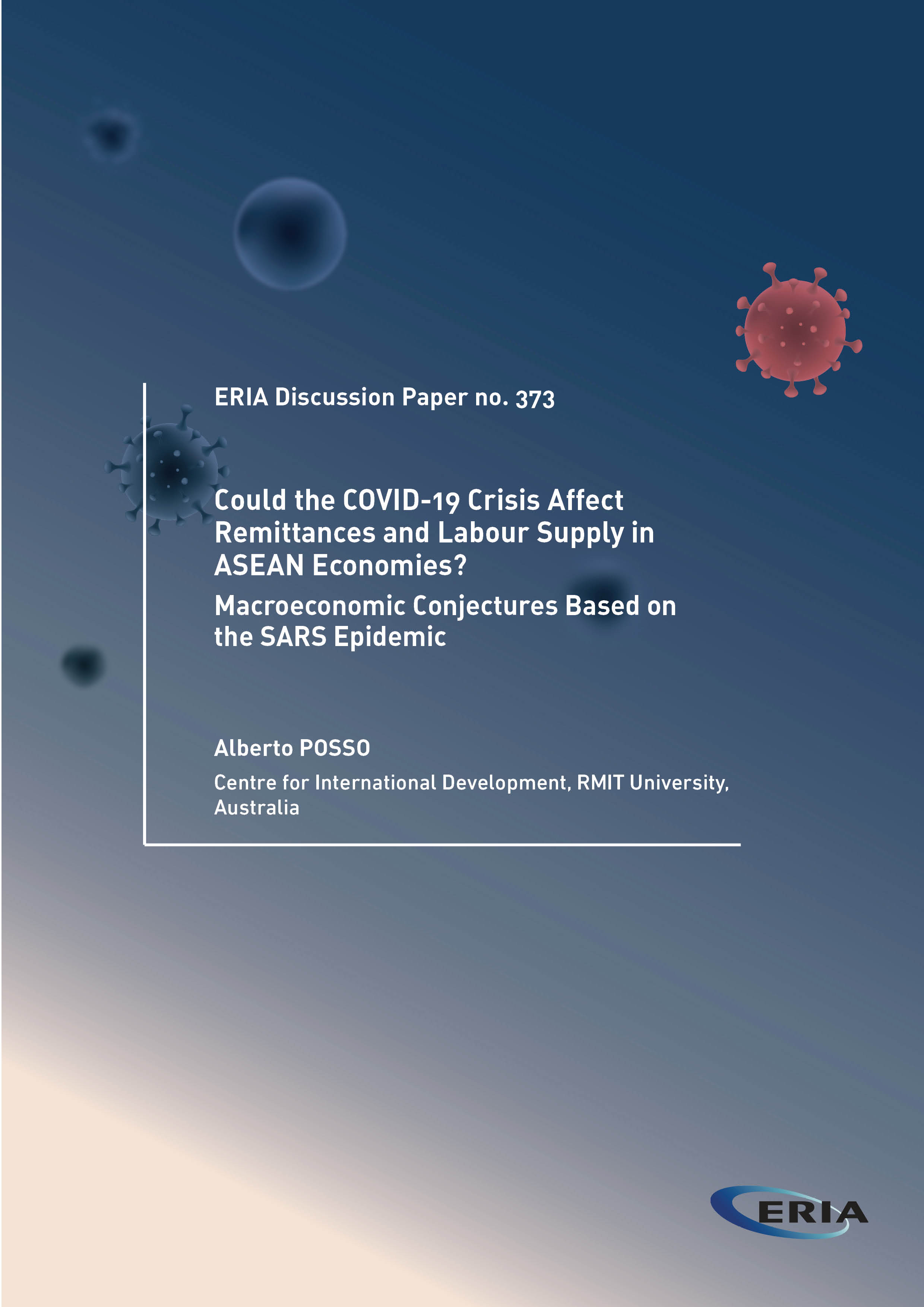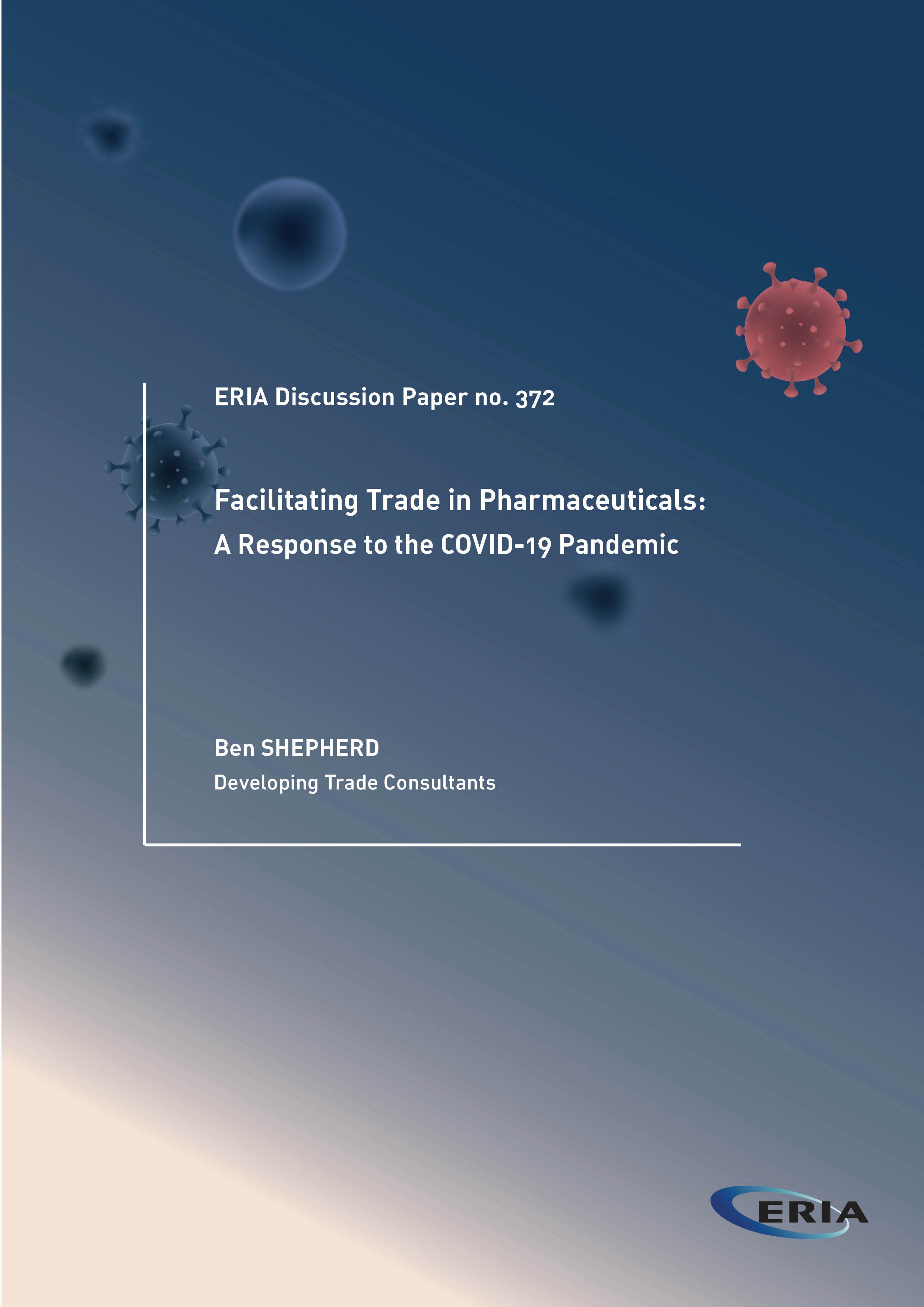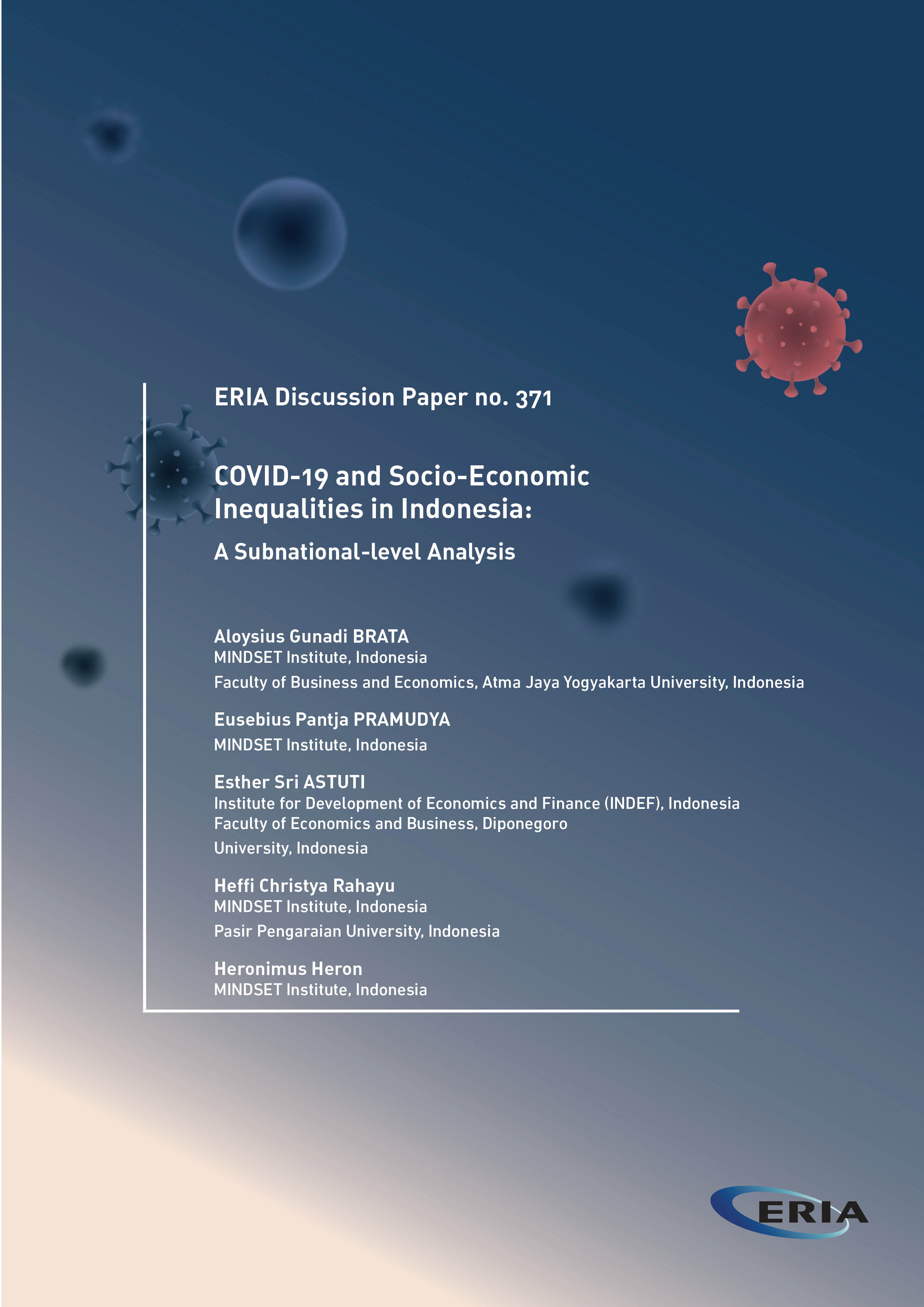Could the COVID-19 Crisis Affect Remittances and Labour Supply in ASEAN Economies? Macroeconomic Conjectures Based on the SARS Epidemic

Date:
28 April 2021Category:
ASEAN, COVID-19, Finance and MacroeconomyType:
Discussion PapersTags:
ASEAN, COVID-19, Labour and Migration, MacroeconomyPrint Article:
Debates on resilience to economic shocks in the ASEAN region focus on what policymakers can do to mitigate negative impacts associated with financial-economic crises. The COVID-19 pandemic has made it clear that the region is also vulnerable to health-economic crises. This study applies a difference-in-difference strategy to data from the 2003 SARS epidemic to shed light on how a global pandemic can affect labour supply and remittances in ASEAN economies. Findings suggest that even a relatively short-lived epidemic can have long-lasting effects on labour supply.
This research was conducted as a part of the project ‘ERIA Research on Covid-19’ at the Economic Research Institute for ASEAN and East Asia (ERIA).




